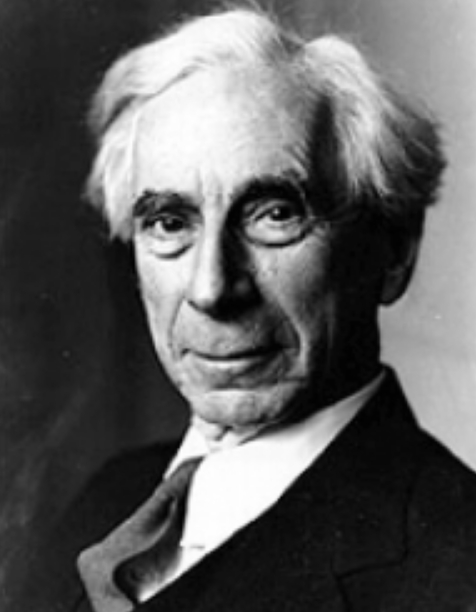On this date in 1872, Bertrand Arthur William Russell was born in England. “A good world needs knowledge, kindliness, and courage; it does not need a regretful hankering after the past, or a fettering of the free intelligence by the words uttered long ago by ignorant men,” Russell wrote. “Bertie” to friends, Russell, during his 97 years, did all he could to add to human knowledge and to inspire kindness.
His second wife, Dora Black, called him “enchantingly ugly.” An attorney who won a suit to void Russell’s appointment to the philosophy department at the College of the City of New York in 1940 because of his liberal views, described Russell as “lecherous, libidinous, lustful, venerous, erotomaniac, aphrodisiac, irreverent, narrow-minded, untruthful and bereft of moral fiber.”
“What I wish at bottom is to become a saint,” Russell once admitted, but he couldn’t help being pleased by the label “aphrodisiac.” The mathematician (who called his first encounter with Euclid “as dazzling as first love”) philosopher and social activist published 75 books.
He launched headlong into a life of radicalism in his 40s as a pacifist opposing World War I. He liked to recount his experience in prison, where he was sentenced for his pacifism, and in his autobiography wrote: “I was much cheered on my arrival by the warden at the gate, who had to take particulars about me. He asked my religion, and I replied ‘agnostic.’ He asked how to spell it, and remarked with a sigh, ‘Well, there are many religions, but I suppose they all worship the same God.’ This remark kept me cheerful for about a week.”
He spent his last years courageously working for nuclear disarmament. In “The Faith of a Rationalist,” broadcast by the BBC in 1953, Russell observed: “Cruel men believe in a cruel God and use their belief to excuse their cruelty. Only kindly men believe in a kindly God, and they would be kindly in any case.” One of his maxims was “Never try to discourage thinking, for you are sure to succeed.” Russell won the Nobel Prize for Literature in 1950 “in recognition of his varied and significant writings in which he champions humanitarian ideals and freedom of thought.” (D. 1970)

